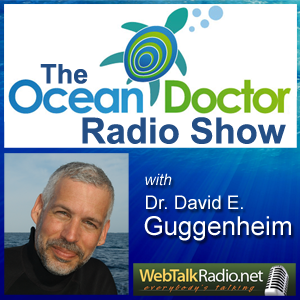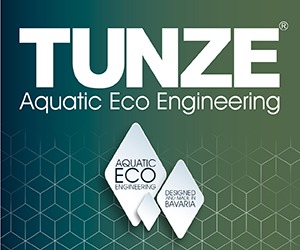 Yesterday I posted a breakdown of my personal aquariums, easing reader’s minds that as someone offering advice on marine aquariums, I actually have a few of them. After spending some time digging around forums (something I rarely do) I learned that the topic of misinformation seems ripe today. I’ve mentioned it before, and rarely do I suggest new reef keepers venture online to a forum for information. Like an open source programming platform, everyone has access, so as much junk comes down the chute as good stuff. Whenever something is wide open to everyone, spam is inevitable as well. I prefer the Apple mentality to gaining reef-keeping information; research, careful observation, testing and trial and error. If it passes through those phases, it may become something I try and eventually promote to aquarists.
Yesterday I posted a breakdown of my personal aquariums, easing reader’s minds that as someone offering advice on marine aquariums, I actually have a few of them. After spending some time digging around forums (something I rarely do) I learned that the topic of misinformation seems ripe today. I’ve mentioned it before, and rarely do I suggest new reef keepers venture online to a forum for information. Like an open source programming platform, everyone has access, so as much junk comes down the chute as good stuff. Whenever something is wide open to everyone, spam is inevitable as well. I prefer the Apple mentality to gaining reef-keeping information; research, careful observation, testing and trial and error. If it passes through those phases, it may become something I try and eventually promote to aquarists.
Misinformation varies, and forums are filled with trolls eager to cause a ruckus. During my visit to a popular forum, I read over a thread about capturing your own fish for an aquarium. It went from somewhat tasteful to downright insane, with one person claiming that any fish they catch is bashed on the head and served for dinner. Considering my studies on the conscious nature of fish, you can imagine how I felt about that. To make matters far worse, many forums are allowing “vendors” to sell corals while influencing the decisions that reef keepers make. It’s a messy stew that takes press away from people really trying to progress the hobby, serious aquarists and those promoting patience and restraint. Saltwater Smarts wrote a post here that named patience as the most valuable tool in the reefer’s toolkit. He hit the nail on the head.
So how do we solve the information dilemma? What constitutes an expert? How can the reliability of information from within the hobby be verified? How much of what we learn is really part of a big marketing scheme?
 My first recommendation is to take a step back into the older days of reef keeping. When I started keeping a coral reef, the internet wasn’t nearly what it has become today, and considering in rural Maryland all that was available was 56k dial-up, it didn’t play a large role in the pursuit of knowledge. You had to crack open a book. Published books on topics like reef keeping are usually reliable sources of information. For a writer to have taken the time to compile the information, pursue publishing and go through the many chains associated with that, you can usually rest assured that the contents is valid information, likely cited at the book’s end.
My first recommendation is to take a step back into the older days of reef keeping. When I started keeping a coral reef, the internet wasn’t nearly what it has become today, and considering in rural Maryland all that was available was 56k dial-up, it didn’t play a large role in the pursuit of knowledge. You had to crack open a book. Published books on topics like reef keeping are usually reliable sources of information. For a writer to have taken the time to compile the information, pursue publishing and go through the many chains associated with that, you can usually rest assured that the contents is valid information, likely cited at the book’s end.
Most major aquarium magazines are excellent sources of information, which can be subscribed too digitally. I’ve written for Tropical Fish Hobbyist for years, and serve on their content review editorial board. The process articles go through, to verify content and validity, is impressive. Everything from scientific name, down to procedures described is checked, rechecked and edited for accuracy. Most publishers (magazine and book) have standards for any article submission and require a background of knowledge from their writers. Writing a magazine worthy article is far different than throwing a post together for a reef forum and you will have to back up your statements with either research or facts.
 I’ve heard aquarists complain that the knowledge in reefing books is behind the times. This is both true and untrue. Many reef aquarium books focus on a handful of proven methods of reef keeping and the author has taken time to research the science behind each one. Many “new-age” methods of keeping reefs haven’t been around long enough to measure their overall success. For example, on reef keeping forums aquarists are advocating using Bayer Advanced insecticide as a coral dip. There is no scientific study on the effects of doing this, other than private aquarists tinkering. No one has measured the long term (in the course of years) effect of the dip. Most have simply looked at immediate, short term results. It would be dangerous to include this in a published book, as there is no body of concrete evidence to support it, or show the negative impacts of such a dip.
I’ve heard aquarists complain that the knowledge in reefing books is behind the times. This is both true and untrue. Many reef aquarium books focus on a handful of proven methods of reef keeping and the author has taken time to research the science behind each one. Many “new-age” methods of keeping reefs haven’t been around long enough to measure their overall success. For example, on reef keeping forums aquarists are advocating using Bayer Advanced insecticide as a coral dip. There is no scientific study on the effects of doing this, other than private aquarists tinkering. No one has measured the long term (in the course of years) effect of the dip. Most have simply looked at immediate, short term results. It would be dangerous to include this in a published book, as there is no body of concrete evidence to support it, or show the negative impacts of such a dip.
One of the best ways to gain intimate knowledge of aquarium related processes is through scientific papers. The internet has progressed this, as many papers are available online. Everything from using carbon to remove copper, to fish health on up to the function of reef animal physiology has been researched, written about and published by a scientist. The main catch to scientific papers is that often they are not free. You can end up paying $ 40 per paper in some instances, or a yearly subscription fee in others. Some scientific publishers will allow you to rent papers, gaining a limited number of reads before the paper expires. While not often the cheapest way to guarantee accurate information, these papers are entirely cited and backed by a body of impressive research.
 Reaching out to scientists often proves a reliable way to gain information. Many research scientists who have published papers can be found online, or offer their email address in the paper. In my experience, many are willing to chat with someone who is seeking information to progress the health of their animals. If you’re a scuba diver in close proximity to a public aquarium, volunteer as a staff diver. While I was a diver at Pittsburgh’s PBG Aquarium, I learned a lot of valuable information from their head aquarist Skylar Snowden.
Reaching out to scientists often proves a reliable way to gain information. Many research scientists who have published papers can be found online, or offer their email address in the paper. In my experience, many are willing to chat with someone who is seeking information to progress the health of their animals. If you’re a scuba diver in close proximity to a public aquarium, volunteer as a staff diver. While I was a diver at Pittsburgh’s PBG Aquarium, I learned a lot of valuable information from their head aquarist Skylar Snowden.
Forums are the quick and easy way to gain information, but they are also a mine field. I have yet to find a forum properly moderated to prevent the spreading of misinformation. Most forum moderators work on a volunteer basis, so even if they have tons of reefing knowledge, they can’t keep up with the pace of users posting. This means that if a post isn’t reported, it’s unlikely to get a lot of moderator attention. In reality, properly moderating a forum would require a body of full time employees, with specific backgrounds in the fields discussed. In most cases, this isn’t likely to exist, even on popular forums. Since advertisers are the financial lifeblood of reefing forums, moderators are quick to shut down any post that calls a vendor out on their practices, if that vendor is a paid advertiser.
In the past I’ve tried to dispel misinformation shared on forums, only to find a wave of replies from users who disagree. Another issue that takes place on forums is the treatment of users, especially beginners. Even those websites that advertise a friendly atmosphere are often full of people just waiting to attack someone. Tang police, coral police, etc – they all exist and I’ve seen some nasty remarks posted over the years. Tearing people apart with words for their mistakes does nothing to teach people how to keep marine life healthy. It hurts people’s feelings, period.
 On the side of reliable vendors, the internet has made finding them a challenge as well. Forums have exasperated the problem, allowing vendors to pay a monthly fee and use the forum much like ebay, conducting sales and promoting corals. Forums and Facebook open a floodgate of opportunity for livestock vendors to manipulate their customers. My advice is always to tread carefully when choosing a livestock vendor. There are some really great vendors out there, and once you find one you like, establish a positive relationship with them. I always tell aquarists, if a vendor has only a forum avatar and Facebook profile, steer clear.
On the side of reliable vendors, the internet has made finding them a challenge as well. Forums have exasperated the problem, allowing vendors to pay a monthly fee and use the forum much like ebay, conducting sales and promoting corals. Forums and Facebook open a floodgate of opportunity for livestock vendors to manipulate their customers. My advice is always to tread carefully when choosing a livestock vendor. There are some really great vendors out there, and once you find one you like, establish a positive relationship with them. I always tell aquarists, if a vendor has only a forum avatar and Facebook profile, steer clear.
As for what constitutes a marine aquarium expert, I don’t believe the term “expert” applies to marine aquariums. We are all learning, adapting methodology as new evidence reveals itself. Every method of keeping a marine or reef aquarium has imperfections; there is always room for improvement. Some writers focus on enhancing our ability to keep animals in captivity, others focus on major topics regarding marine life and conservation. There is always something to learn, for everyone. Instead of seeking out an expert, I would try to seek out passionate aquarists who are willing to share both their triumphs and their failures, all in pursuit of doing better. Just be sure that any opinion, idea or method you find intriguing is backed by actual facts and research. It’s amazing that the reef aquarium hobby makes some of us experts in once facet of reefing, and complete beginners in others. One step to solving the information gap would be a wide variety of aquarium professionals, writers and private aquarists continuing to expand their horizons and share the results with others. This would require focusing attention solely on issues related to the aquariums we know and love.










Check out Kev with the glam shot!